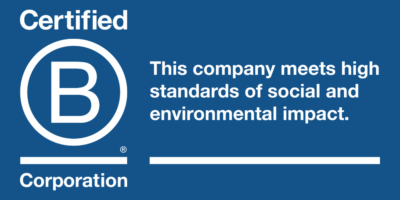Our Focus on Water Stewardship
By Cindy Bohlen, CFA
Milwaukee, Wisconsin is located at the confluence of three rivers and Lake Michigan – part of the largest freshwater system in the world. Milwaukee is also gaining recognition as a global hub for expertise on water challenges and solutions. Our location amidst these important bodies of water and growing water hub have given Riverwater Partners a great appreciation for the significance of water stewardship, which has led us to focus on it as a major theme of our responsible investment practice.

Milwaukee River
Water is one of the most important natural resources for the planet, its people, and the businesses who rely on it. Seventy percent of the world’s freshwater is used in agriculture and is therefore critical for food production. In a 2022 UN Global Compact/Accenture survey of CEOs, 57% reported that air, water, and land pollution are having a high or moderate impact on their business today. Water stewardship is therefore critical for business and societal well-being because it ensures that the water resources needed for industry and communities are managed sustainably. This includes protecting water quality and quantity, reducing the risk of water scarcity, and ensuring that access to clean water is available for all.
Water presents business risk and opportunity. Responsible investment advisors should seek to understand potential water-related risks and opportunities in the areas of access, regulation, reputation, and more as part of their due diligence, using publicly available company data, third-party data, and dialogue with management teams to learn about the potential for water to impact the business or for the business to impact the water supply.
Our engagement practice seeks to raise management teams’ awareness of the potential risks and opportunities presented by water. We offer educational information and suggestions for best practice to companies for whom water stewardship is a salient issue. This is particularly applicable for companies that rely on water for their business operations – food and beverage companies, manufacturing companies, extractive companies – as well as companies that may potentially benefit from a focus on water stewardship – water technology companies, water utility companies.
Collaboration with thought leaders and other responsible investors informs our practice and strengthens our engagement. We value our association with The Water Council, a Milwaukee-based non-governmental organization with an international reputation for supporting corporate water stewardship and fostering water-related technology. In 2021, Riverwater became a Water Champion partner organization of The Water Council. Our due diligence and engagement processes are enhanced by collaboration with The Water Council’s experts.
Water is a complicated topic that needs more attention. For example, at The Water Council’s annual Water Leaders Summit, we heard from entities impacted by per-and polyfluoroalkyl substances, otherwise known as PFAS or “forever chemicals” in water, from experts on the potential for conflict in water-affected regions of the world, from innovators developing solutions to water issues, and more. The panel discussion featuring stakeholders dealing with the water crisis in the Colorado River basin provided valuable insights for our continued dialogue with a portfolio company growing citrus and avocados in California and Nevada, relying heavily on water from this endangered source.
The sustainable investment community is also desperately seeking credible frameworks to verify sustainability efforts and avoid “greenwashing” in portfolio companies. This is particularly true for water stewardship, which can be difficult to quantify due to water’s complex and hyperlocal nature. One initiative that addresses this is The Water Council’s program for enterprise-wide water stewardship verification, WAVE. We see WAVE as an ideal vehicle for management teams to identify their greatest water challenges and opportunities—and to create a plan to address them. We appreciate its approach that moves companies from intention to action.
As responsible investors, our goal is to use sustainable investing to enable reduced business risk for portfolio companies and better outcomes for society and our clients. In our view, stewardship of our most precious natural resource – water – has the potential to benefit the planet, its people, and prosperity for all. __
Cindy Bohlen, CFA, is Chief Mindfulness Officer & Analyst at Riverwater Partners, which manages ESG strategies for institutions and individuals with a focus on small- and mid-cap stocks.
[1] PFAS stand for stands for per-and polyfluoroalkyl substances and are manmade chemicals used in consumer and industrial products. They’re often referred to as “forever chemicals,” because most don’t break down.








